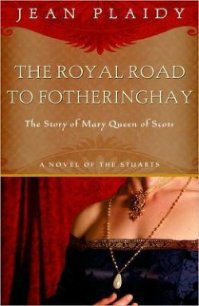In the Shadow of the Crown - Plaidy Jean (книги хорошем качестве бесплатно без регистрации .txt) 📗
I nodded.
“And more dangerous still… the Princess Elizabeth.”
“Do you think…?”
“I am of the opinion, Your Majesty, that she is a very dangerous lady.”
It all seemed to come back to Elizabeth.
While I was growing more and more anxious about these rumblings of revolt, the marriage treaty was signed. It had been very carefully drawn up. Our two dominions, England and Spain—which Philip would inherit on the death or abdication of his father—were to be governed separately. Only the English were to hold office in the English Court and government. If I had a child, it was to inherit my dominions with the addition of Holland and Flanders. I was not to be taken out of the country, nor should any children I might have, without my consent and that of the government. England was not to be involved in any wars in which Spain might be engaged, nor was Spain to appropriate English ships, ammunition or the crown jewels; and if I died without children, all connection between England and my husband would cease.
All this seemed fair enough, but there was one final clause, and I think that was what aroused the indignation of the people: Philip was to aid me in governing the country.
It was soon after the contents of the treaty were made public that trouble started in earnest.
The disappearance of Sir Peter Carew had to a certain extent quelled that which was about to take place in Devon. Courtenay had left London. He had not been arrested because he had alerted us to the dangers of the plot; but at the same time he had been guilty of traitorous intent. The plan had been to dethrone me, marry Courtenay to Elizabeth and set her on the throne, at the same time establishing the Protestant religion throughout the land.
There was a rising in the Midlands by the vassals of the Duke of Suffolk. Their aim was to set up Lady Jane Grey and also the Protestant religion.
Courtenay's confession had helped a great deal, and these were suppressed. But there was yet another to contend with, and this proved to be a very serious matter.
It was headed by Sir Thomas Wyatt. He was a headstrong young man from Allington Castle in Kent, and he continued to rouse the men of that county to action.
Wyatt was not unknown to me. He was the son of the poet who had been a close friend of Anne Boleyn—possibly her lover. I was greatly suspicious of his motives, and I wondered whether his father's love and admiration for the mother had been transferred by him to the daughter.
Every time I heard of these disloyal insurrections, my thoughts went to Elizabeth.
This Wyatt was a man to watch. He was an adventurer such as Peter Carew. They stepped naturally into the role of leader. They were fearless in the first place; they were reckless, too. I supposed it was those qualities which endeared them to others.
As a very young man Wyatt had been in trouble along with Henry Howard, Earl of Surrey, who himself had lost his head just before my father died. They had been wild young men, roaming the streets of London together, taking part in mischievous tricks which had resulted in their being arrested and spending a few weeks in the Tower. As such young men often do, Wyatt had later distinguished himself. This was in military service in Boulogne, and later he had been among those who had helped to defeat the Duke of Northumberland when the latter had tried to set Jane Grey on the throne. It seemed that he had been a loyal subject until the intended Spanish marriage was proposed.
Later I heard more of what had happened. Edward Courtenay was more deeply involved than we had at first realized. He it was who, knowing of Wyatt's dislike of the Spaniards, had invited him to raise men in Kent to join the insurrections. Wyatt was enthusiastic. Long ago, he had traveled to Spain with his father, the poet, who had been arrested and taken before the Inquisition. It was something he had never forgotten, and an intense hatred of Spaniards had been born in him then. He was determined to do everything possible to stop the Spanish marriage, and he, like many others, believed that, with a Spanish consort, Spanish manners and customs would be introduced into the country.
When a number of the conspirators were arrested, Wyatt found himself the head of the revolt. He might have fled the country, which would have been his wisest course of action, but men like Wyatt are never wise. Caution and self-preservation are traits quite unknown to their nature.
Finding himself forced into the position of leader, he rode to Maidstone and there proclaimed his cause. His neighbors and friends from other counties were urged to fight for the liberty of the people which would be suppressed if the Queen married a foreigner.
Renard came to see me in great consternation.
He had his spies placed everywhere, and the most accomplished were in the household of the French ambassador, who, he said, was our most dangerous enemy. The news he had to impart was indeed disquietening.
“King Henri is planning to open a front along the Scottish border,” he told me.
“And he is hinting at giving help to the rebels.”
“He cannot do that!” I cried.
“Why not? The Scots are always ready to come against us. They will welcome him. He has twenty-four warships on the Normandy coast, just waiting until the moment is ripe.”
“Why should he help the rebels?”
“He will help them to defeat your supporters, and then he will step in to perfect his plan.”
“To put Mary of Scotland on the throne. But the rebels want Elizabeth.”
“They are simpletons, he thinks. He will get them to do the worst of the work for him, and that will be the end of them.”
“How dangerous is this? We have suppressed the risings… all except this one of Wyatt's.”
“It is this one of Wyatt's that we have to watch. The sooner you are married, the better it will be.”
“Wyatt cannot do much against trained men.”
“Wyatt has been a soldier. He is not merely some hothead with a grievance. It is disturbing that the French should be ready to involve themselves in this.”
“I should like to dismiss de Noailles.”
“It would do no good. There would be another, and it is better to have one of whose methods we know something.”
“I shall send Norfolk against them.”
I was confident at this time that the trouble would soon be over.
This was not the case. As Renard had pointed out, Wyatt was a soldier; and, to my horror, it was not Wyatt who was defeated but Norfolk. I was greatly distressed when our soldiers returned to London; they were tired, dirty and hungry; they looked like the defeated army they were. There was great consternation among the citizens. It was clear to them that this was a serious revolt.
Then came the news that Wyatt was preparing to march on London.
It began dawning on me that I was in a desperate situation. I had no army to defend me. I asked myself how far I could trust my Council. I knew them for a group of ambitious men jostling for power. There was a small faction against Gardiner. He—with my support, it is true—was too fervent a Catholic; he was accused of causing trouble by trying to force people to join in religious observances against their will and for which they were not yet ready. Gardiner turned to them and declared that the sole trouble was the Spanish marriage and he had often questioned the wisdom of that.
So there I was, in my capital city, without an army, with a Council who were quarrelling among themselves, and rebels preparing to come against me.
Wyatt's headquarters were at Rochester, where he had gathered men and ammunition and was preparing to march on London. I sent messages throughout the country, offering a pardon to all his followers who left him within the next twenty-four hours and returned peacefully to their homes, reminding them that, if they did not, they would be judged traitors.




